At Winters Fruit Tree, the Next Generation Builds on 100 Years of Sustainable Farming
Selina Knowles, Communications Coordinator
August 31, 2023
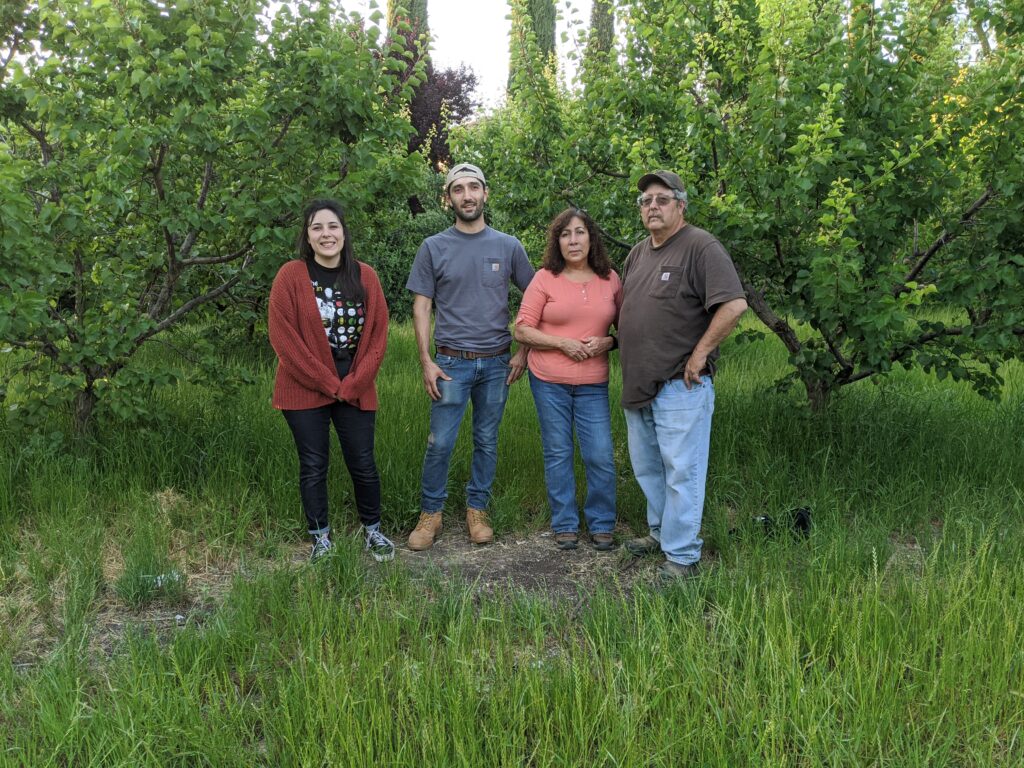
When Phillip and Pauline Lupertino started growing cherries and apricots in the 1920s, Sunnyvale, California, was prime farmland. Over the next 100 years, the land would change as housing developers moved in, and their growing family would move to Winters, where their farm, Winters Fruit Tree, gets its name. With their diverse offering of fruits, nuts, and nut butters, Winters Fruit Tree has been a part of Foodwise’s Mission Community Market since its founding in 2010, and they joined the Ferry Plaza Farmers Market in 2018.
As the small family farm transitions to its fifth generation of stewards, they continue to adapt to California land development, increased globalization of our food system, and a changing climate. “All of these issues are connected, so it’s not one thing that matters to us. It’s all of it,” says Ariela Carter, the great granddaughter of Philip and Pauline, who now manages the farm alongside her brother, Phil Jr. Carter.
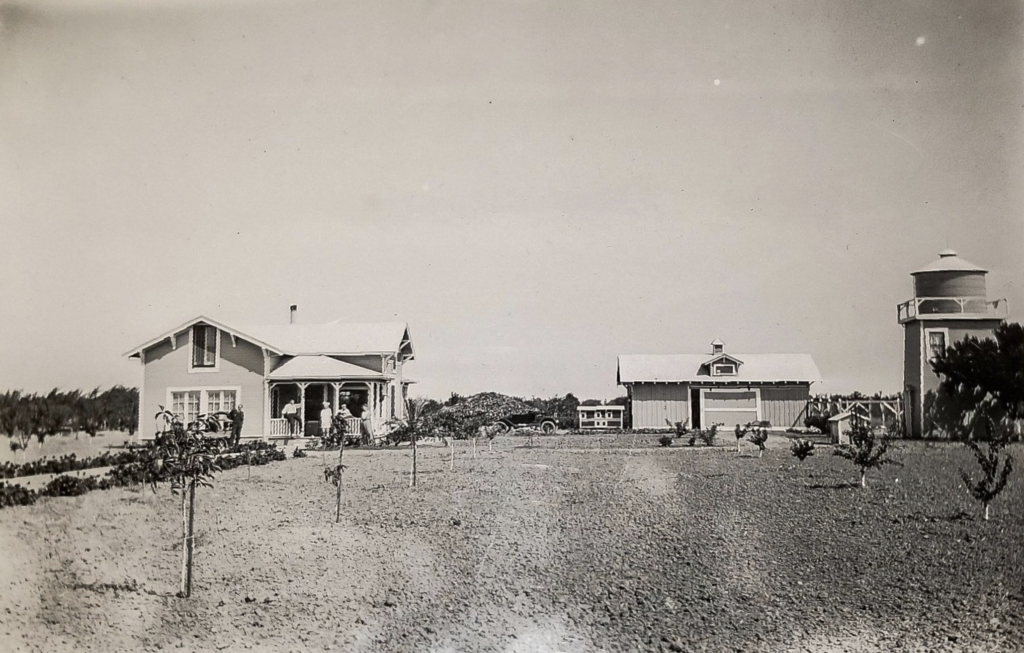
Orchards Uprooted by Increasing Land Development
“We pretty much grew up with it,” says Ari, now 30 years old, to explain why she decided to be a farmer. “When we were toddlers, our parents would take us to farmers markets. We have a little farm stand, too, so I grew up running that and always being there.”
“We call it child labor,” Phil Jr., 29 years old, chimes in with a chuckle.
At first, the Carters grew only fruit on their land in Sunnyvale. But toward the end of the 20th century, fruit orchards gradually disappeared from the region, as competition from producers abroad grew. Since the 1970s, fresh and processed fruit imports have been increasing, and the United States now imports more than it exports.
“All the farmers started switching over to nuts,” recalls Ari. “We did retain some of the fruit trees, but we also spread into growing other things like walnuts, pistachios, and almonds.” At the farmers market, Winters Fruit Tree is popular for their wide variety of flavored nuts and food crafts like Jalapeno Garlic Pistachios and Snickerdoodle Almond Butter, in addition to their fresh fruit.
The farm has also continually been challenged encroaching development. Ari says, “When we moved out of Sunnyvale, it was because of development that was surrounding us. We were one of the last holdouts in Sunnyvale. We ended up moving north because our farm was eventually surrounded by subdivisions.”
Now, over 50 years later, the same thing is happening to the family in Winters. Phil Jr. says that Winters “went from having 10 fruit stands in town, and now there’s just us and [two others].” California loses at least 50,000 acres of farmland each year due to development pressures.
With so many small farms vacating, the Carters’ appreciation for the region’s tradition of farming has grown. “The land is changing,” says Ari. “We really value the small farms that persist, and we want the land to stay diversified and not have big development companies come in and create the same [built] structure everywhere that they go.”
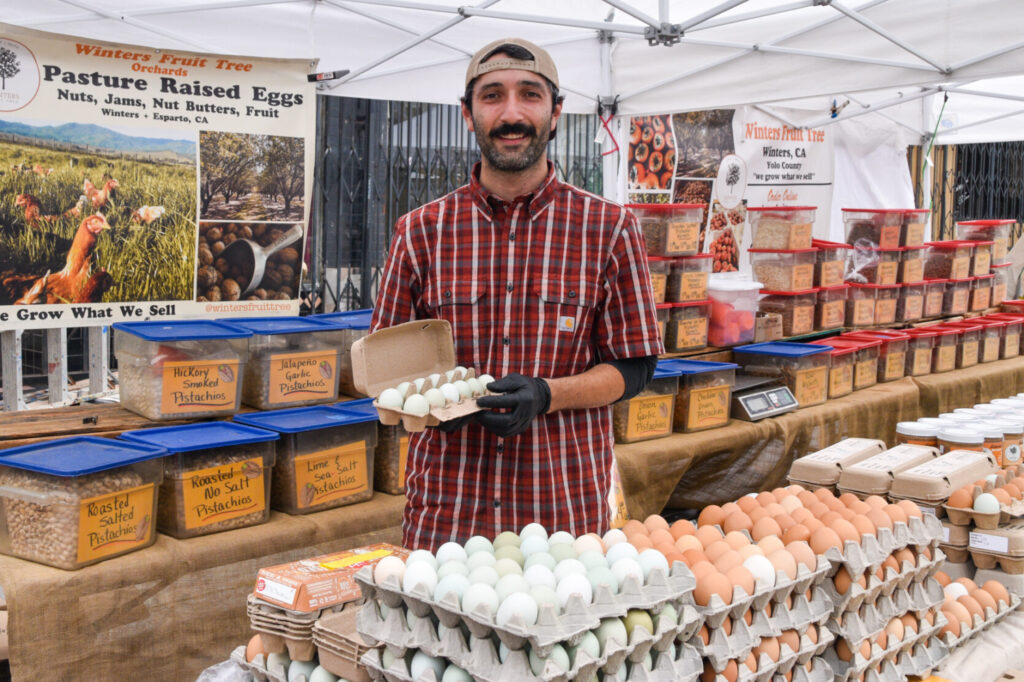
Embracing Diversity for Long-Term Sustainability
Diversifying the farm’s products, while a lot of work, is a survival tactic for the Carters. Through year after year of weather extremes, including severe flooding this past winter, crop diversity is crucial to their farm’s environmental and economic sustainability.
“We like the idea of doing a little bit of everything,” says Ari. She notices that a lot of big farms are not diverse, but instead they often plant one or two main crops, which can be risky down the line. She offers as a current example the fact that walnut prices have dropped, which means that farms primarily growing walnuts are in trouble.
“We see a lot of orchards around our area are being chopped down, and now they’re planting just almonds,” says Ari. “It’s important to have diversity with what you grow because it gives you a safety net if something goes wrong.”
Diversity also supports resilience amid the uncertainty of climate change. This winter, many farms in Northern California were struck by storms and flooding, and Winters Fruit Tree was no exception. Flooding on their farm delayed plantings and weathered their orchards. But even as things have been delayed this spring and summer, their crop diversity means that they are always able to bring something to the farmers market.
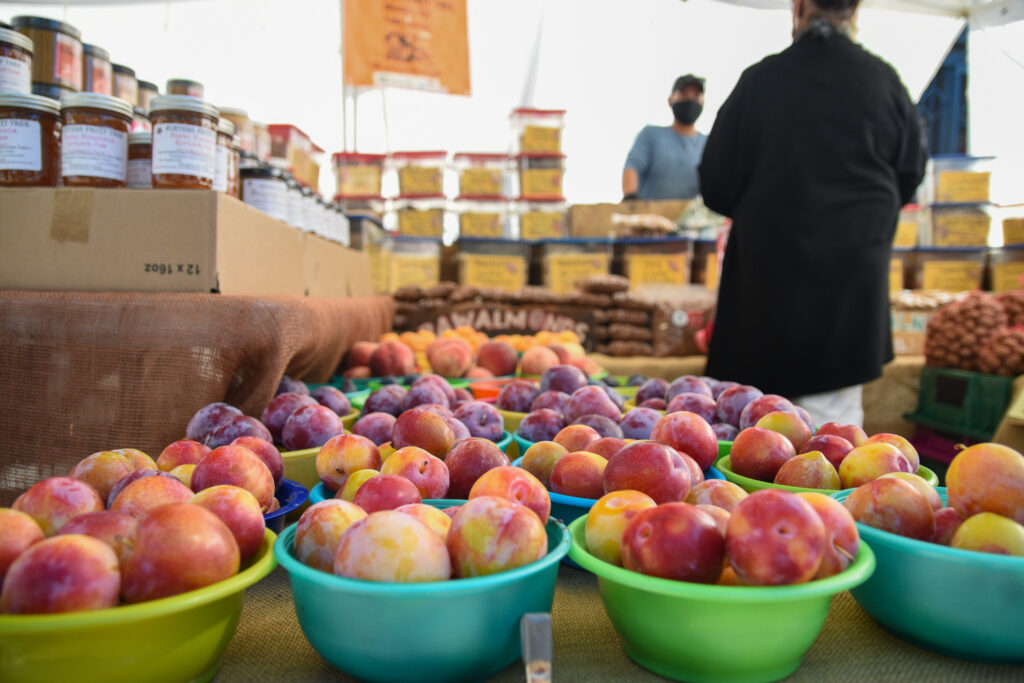
“Having diversity just helps with everything,” says Ari. “It’s also better for the environment because you’re not depleting the soil by doing too much of one thing.”
“It opens new doors as well,” adds Phil Jr. In 2021, he took on the project of raising chickens. “The next step we’re thinking about is taking chicken manure and trying to apply that to the orchard. [Diversity] gives you new ideas and openings to try different things.”
Phil Jr. notes that they acquired many of their birds and equipment from a neighboring producer, who was going into retirement without a successor to take over his operations. The average age of farm producers is now 57, having risen over the past few years, which means that more farmers are facing the decision of how to transition their operations to the next generation of stewards.
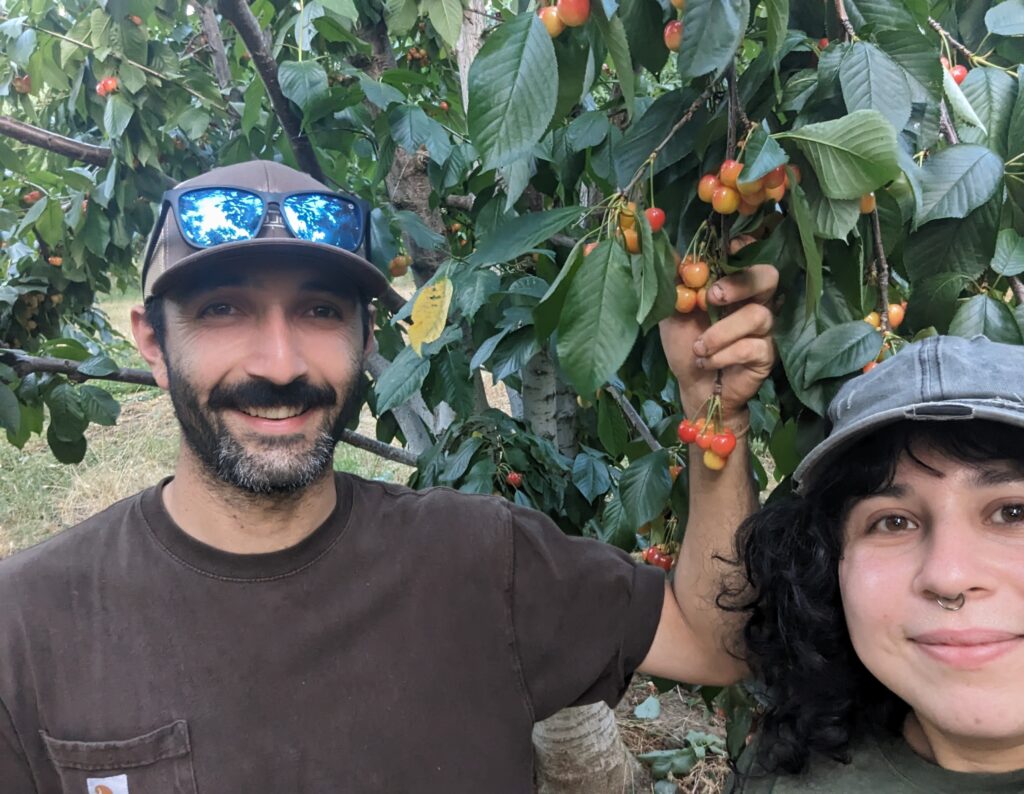
Carrying Family Legacies into the Farm’s Future
Ari, 30 years old, and Phil Jr., 29 years old are committed to keeping the family farm going. It’s something that they’ve thought about a lot.
Phil Sr. and Carmen Carter are still working on the farm full-time, and their children are each fulfilling their own roles: Ari is a full-time Farm Manager, Phil Jr. is a full-time Farmer and Farm and Market Manager, and their sister, Ellie, is a part-time General Manager.
“You see all these older farmers that are going out because they don’t have kids that take interest,” says Phil Jr. “But there’s this sense of responsibility [for me] because not many people get a chance to take over a farm. The people that do want that option may never get it.”
Ari shares that sense of obligation and sees it as a way to honor the generations that came before her, on both sides of her family. Ari’s mother grew up in Mexico, and, along with many of her relatives, she would often cross the border to work on farms in Arizona.
“My grandma was out in the fields picking lettuce, and now me and my brother are here, managing and operating a farm,” says Ari. “You don’t really see a lot of Chicano kids doing this. And it’s mainly because they don’t get the opportunity to. You don’t have a lot of Latinos who are able to run a farm and pass it on to future members of their family.”
Building on a century of their family’s farming legacy keeps Ari and Phil motivated to care for their farmland, even in the face of many challenges. “Some days it’s really hard,” says Ari. “But I know that I’m respecting the land, and I’m taking care of it while I’m here. That’s what keeps me going.”
Find Winters Fruit Tree at the Ferry Plaza Farmers Market on Saturdays in their new location in front of the Ferry Terminal Plaza, along the Embarcadero, and at the Mission Community Market on Thursdays.
